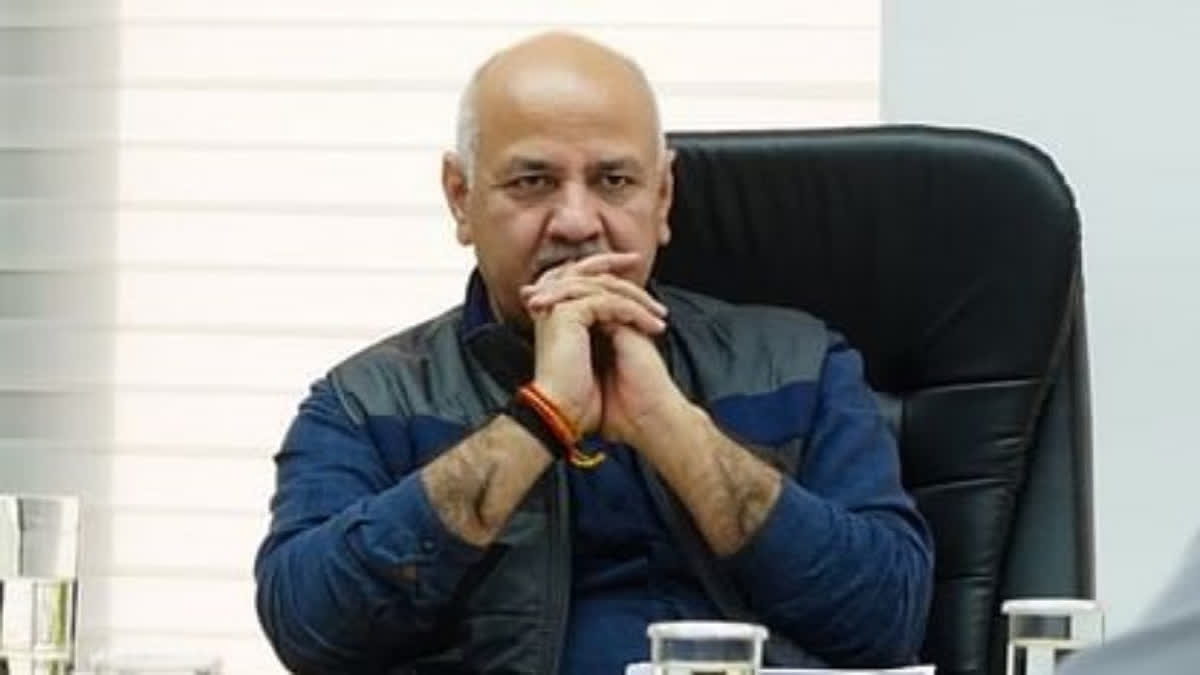New Delhi: In a big setback to AAP leader and former Delhi Deputy Chief Minister Manish Sisodia, the Supreme Court has junked his review petition against an apex court order denying him bail in the money laundering case connected to the Delhi excise policy scam.
A bench of Justices Sanjiv Khanna and SVN Bhatti declined an open court hearing and held that no grounds of review were made out. “Prayer for oral hearing of the review petitions is rejected. We have carefully perused the review petitions as well as the grounds in support thereof. In our opinion, no case for review of the judgment dated October 30, is made out. The review petitions are, accordingly, dismissed. Pending application(s), if any, shall stand disposed of”, said the bench, in its order passed on December 13.
Sisodia filed the review petition challenging the apex court's order denying him bail in the money-laundering case connected to the Delhi excise policy scam. On October 30, the Supreme Court had junked two bail pleas by Sisodia.
In the judgment, a bench comprising justices Sanjiv Khanna and S V N Bhatti though denied bail to Sisodia, however, said: “The involvement of an accused may be direct or indirect. Prima facie, there is a lack of clarity, as specific allegation on the involvement of the appellant – Manish Sisodia, direct or indirect, in the transfer of Rs. 45,00,00,000 (rupees forty-five crores only) to AAP for the Goa elections is missing”.
The bench had observed that there is one clear ground or charge in the complaint filed under the Prevention of Money Laundering Act (PMLA), which is free from perceptible legal challenge and the facts as alleged are tentatively supported by material and evidence, and this discussion is equally relevant for the charge-sheet filed by the CBI under the Prevention of Corruption Act and IPC.
The bench recapitulated the facts as alleged, which it is stated establish an offence under Section 3 of the PML Act and the PoC Act: In a period of about ten months, during which the new excise policy was in operation, the wholesale distributors had earned Rs. 581,00,00,000 (rupees five hundred eighty-one crores only) as the fixed fee. It further cited: the one-time licence fee collected from 14 wholesale distributors was about Rs.70,00,00,000 (rupees seventy crores only); and, under the old policy 5% commission was payable to the wholesale distributors/licensees.
Denying bail to Sisodia, the bench said for the sake of clarity, without making any additions, subtractions, or a detailed analysis, “we would like to recapitulate what is stated in the chargesheet filed by the CBI against the appellant”. The CBI alleged that the existing excise policy was changed to facilitate and get kickbacks and bribes from the wholesale distributors by enhancing their commission/fee from 5% under the old policy to 12% under the new policy. “Accordingly, a conspiracy was hatched to carefully draft the new policy, deviating from the expert opinion/views to create an eco-system to assure unjust enrichment of the wholesale distributors at the expense of government exchequer or the consumer. The illegal income (proceeds of crime, as per the DoE) would partly be recycled and returned in the form of bribes”, the bench cited CBI’s allegation.
The Delhi liquor policy was implemented by the Delhi government on November 17, 2021, but was later scrapped at the end of September 2022 amid allegations of corruption.



